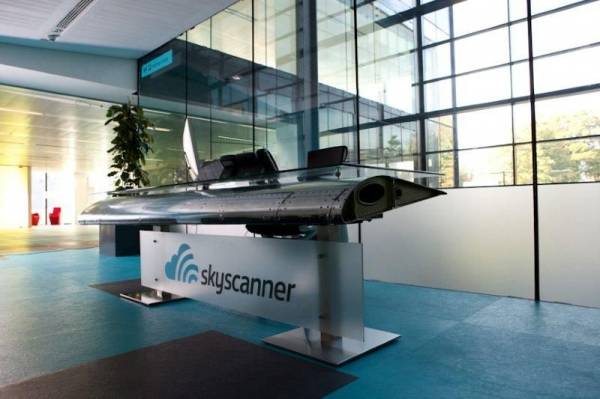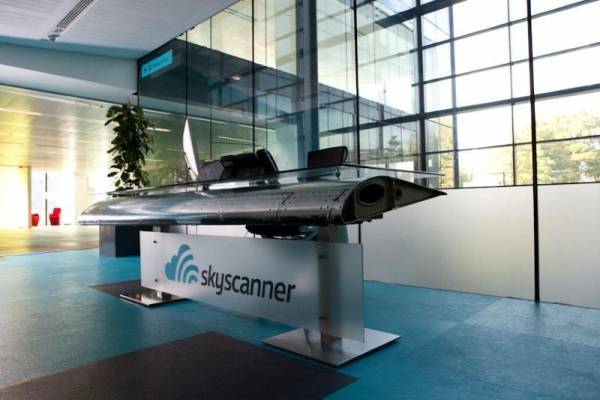
Skyscanner’s take on voice search in the travel industry

The last few years have witnessed mammoth shifts in the landscape of technology within the travel industry, with mobile technology now at the forefront.
Accompanying this trend is the adoption of voice search. Naturally, voice search is far more compatible to connect with on a small, mobile device than on a large one which requires typing, such as desktop.
We predicted back in 2014 that by 2024, globetrotters will have a Digital Travel Buddy - a virtual companion that uses artificial intelligence to accurately suggest and book suitable trips for the traveller of the millennium. Check out the full The Future of Travel 2024 report.
The next step towards this is the ability to integrate hardware and software in a manner that allows the user to directly interact with a device and receive information – something that can apply to almost any sector, but which is especially important in travel, where every user has differing requirements for their trip
At Skyscanner we have observed this shift in trends and recently became the first travel search engine to integrate with Amazon’s Echo; a partnership that has seen Amazon integrate the Skyscanner flights API into its cloud-based voice service, Alexa.
This integration allows users to ask Alexa to search Skyscanner for flight travel options, through Amazon Echo – the hands-free device that connects to Alexa to provide information, answer questions, play music, read the news, and more.
Although it was previously thought that the Digital Travel Buddy would not become a reality for another decade, the idea is now closer to becoming a reality, and is something becoming integral to all aspects of the digital sphere.
David Low, developer advocate and engineer at Skyscanner, stated: “Voice integration is an important feature for the travel industry, and the digital world in general.
“Conversational integration is appearing in everything from wearables, to cars to mobile apps, reinforcing that conversation and messaging are fast becoming mainstream. We expect voice products to be a major driver for this mainstream adoption."
One key challenge facing voice search is the software required to recognise accents from different regions - something particularly true in the UK, where the pronunciation of certain words can vary significantly between regions, and Edinburgh is a perfect example.
With nearly 20 different nationalities in the Skyscanner Quartermile offices and lots more accents in between, it was the ideal environment to test the voice integration with Alexa, with accents ranging from Glaswegian to Parisian.
Accents was not the only obstacle we faced while building the integration. Blaming the British influence on our Edinburgh office, our team were far too polite when talking to Alexa with a surplus of ‘pleases’ and ‘thank-yous’. Every phrase Alexa was trained to hear - such as "ask Skyscanner for a flight" - had to be tuned with the word "please" at either end.
Alexa then had to reciprocate by being polite in response, thanking the user for their input at each stage, but without sounding repetitive - and yes, robotic!
Alexa search will soon be deployed in the US, where Amazon currently operates the service and sells compatible devices. You can see Alexa in action here.
It marks a gradual shift in the way that consumers search for products of all shapes and sizes, from asking Siri where to buy a particular item, to purchasing a flight to another continent.
As always, it is an exciting time for us, and the travel technology industry as a whole. We look forward to seeing how future trends develop and how these will impact traveller experiences across the world.
Skyscanner is a leading global travel search site. With headquarters at Quartermile in Edinburgh, it provides instant online comparisons for millions of flights as well as car hire and hotels.





